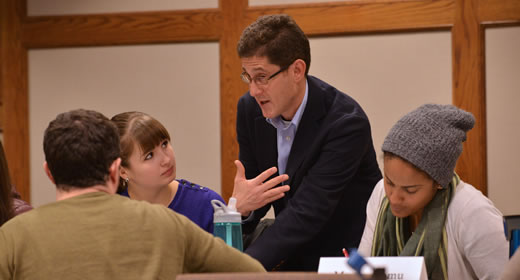
For more than a decade, enrollment in Grosse Pointe public schools has been on the decline. As a result, most school buildings are only partially filled and the school district’s coffers lose approximately $1 million a year. Faced with budgetary constraints, the school district has proposed a series of options for saving money and to right-size the district.
Appearing in The Detroit News on April 10, 2019, Jennifer Chambers’ article “Grosse Pointe schools weigh closures amid dropping enrollment” details two of the options for the district: closing schools and grade reconfiguration. The district may elect to close some buildings and integrate fifth graders into middle schools that historically housed grades 6-8. The district would then save money from cutting staff and potentially selling the empty buildings for housing developments.
Grade reconfiguration, however, raises concerns for the performance of fifth graders according to Ford School Professor Brian Jacob. “Wherever you look,” Jacob said, “if you track students over time, whatever grade they make a transition, you see a decline in their performance and that rebounds when they are in a new space.” The shock from the transition to a larger building in which students are granted more autonomy while also receiving more steady workloads has proved troublesome.
Fortunately, there are options to relieve the stress from grade reconfiguration. Professor Jacob points out that “Some schools have done advisory periods for fifth graders.”
The district will hold numerous town halls to hear from the community and address some concerns parents may have such as transportation to new schools should current building close. The district plans to make a decision by June.
The Walter H. Anneberg Professor of Education Policy, Brian Jacob is also the co-director of the Youth Policy Lab. Jacob also received the David N. Kershaw Prize for his contributions to the public policy field. He is Co-Director of the Education Policy Initiative (EPI) and Youth Policy Lab (YPL), former director of the Center for Local, State and Urban Policy (CLOSUP), as well as a Research Associate at the National Bureau of Economic Research (NBER).